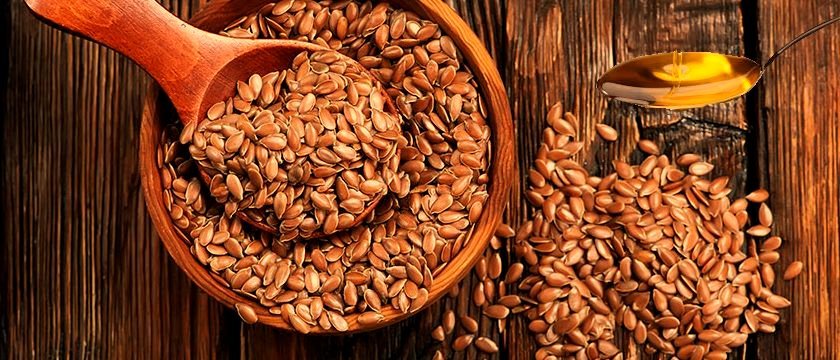Flaxseed Oil – Flaxseed is the seed from the plant Linum usitatissimum. It is said that flaxseeds are one of the oldest food items. Today it is gaining popularity all over the world. The reason for this is all the nutrients found in it such as Omega-3, fatty acids alpha-linolenic acid (ALA). In addition, vitamin B-1, selenium, phosphorus, copper, zinc, magnesium, manganese and protein are also found in it. It is also used as an alternative to wheat due to the presence of soluble and insoluble fiber in it.

Flex Seeds Ingredients (1000 mg)
| Calories | 25 |
| Total Fat | 3 g |
| Saturated fat | < 0.5 g |
| Polyunsaturated fat | 2 g |
| Monounsaturated fat | 0.05 g |
| Organic Flax Seeds Oil | 3 g |
Flaxseeds Side Effects
| keep checking your blood sugar level when using it. |
| Avoid intake in excess. It can cause allergic reactions. |
| Pregnant women and lactating mothers should avoid its use. |
| Its medicine should be used only in consultation with a doctor. |
Flex Seeds Uses And Benefits
(A) In the treatment of cancer – Flaxseed also plays a major role in the treatment of severe diseases like cancer. The element called lignin provides protection against breast cancer by inhibiting the enzymes responsible for the metabolism of hormone and proliferation of tumor cells.
(B) To improve digestion – The fiber present in flaxseed is essential for our digestive system. Along with helping to move food through the intestines, they also work to keep the gastrointestinal healthy. Drink plenty of water whenever you consume it.
(C) For the skin – Vitamin B, found in linseed oil, is useful for healthy fats and skin. This prevents the skin from becoming dry. This ends problems like acne, allergies and eczema. Apart from this, it is also found to have anti-inflammatory properties. So that it protects the skin from many troubles.
(D) In heart disease – Linseed oil is also used to maintain heart health. The monounsaturated, polyunsaturated fats found in it as well as omega-3 and fatty acids are useful for the heart. Linseed is also helpful in the formation of plaque in the arteries and in reducing heart disease and inflammation of the arteries.
(E) To lose weight – Omega-3, fiber, fatty acids, and lignin found in flaxseed seeds to reduce weight are helpful in losing weight. It also contains vitamin B, magnesium, potassium, and zinc, which are capable of weight loss.
(F) For hair – Vitamin E present in flaxseed is helpful to prevent hair fall. It also works to make the hair strong and healthy. You can also make your hair curly with linseed oil.
(G) Into Rejuvenation – Linseed oil also plays a major role in protecting women from all the problems faced during diplomacy. It also has the ability to maintain the menstrual cycle and increase fertility.
(H) In the treatment of sugar – Consumption of flaxseeds can improve type 2 sugar patients in their blood sugar levels. The alpha linolenic acid found in it also acts to control protein and fiber.
(I) Cholesterol lowering – Flavanoids and soluble fibers found in flaxseed seeds aid cholesterol absorption. Consuming 2-4 teaspoons of flaxseed seeds daily helps in the control of cholesterol.
(J) Elimination of toxins – Many types of toxins are produced in our body. It is very important to remove them. Flaxseeds contain omega-3 fatty acids which reduce the clearance of these wastes. In addition, soluble and insoluble fiber is also helpful in the elimination of toxins.
Special Precautions & Warnings:
- Flaxseed is POSSIBLY SAFE for children when taken by mouth, short-term. Flaxseed oil has been safely taken by mouth for up to 3 months by children about 7-8 years old.
- Flaxseed oil might increase the risk of bleeding during and after surgery. Stop using it at least 2 weeks before a scheduled surgery.
- Consult physician if pregnant/nursing, taking medication (especially anticoagulant or anti-platelet medications), or have a medical condition.


I have fatty leaver problem (hepatitis b) Due to taking the drugs from 2 years but leave now from 2 months can I use flax oil
please consult with doctors